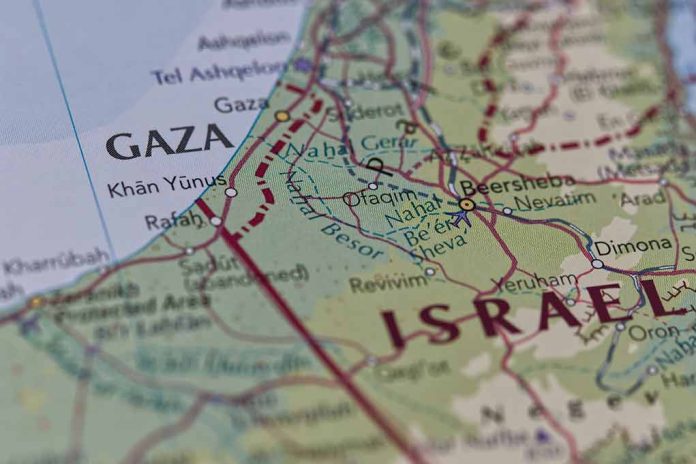
At a Glance
- UN Secretary General António Guterres expressed deep concern over the cross-border strikes.
- Israeli jets targeted multiple sites in southern Lebanon to prevent a broader attack.
- Hezbollah retaliated with hundreds of rockets and drones.
- Daily exchanges of fire have intensified since the Israel-Hamas war began.
Preemptive Strikes in Southern Lebanon
Recently, Israel conducted precision strikes on Hezbollah facilities in southern Lebanon. Israeli military officials stated that these attacks aimed to thwart potential terror-related actions by Hezbollah. The strikes included dozens of sites, highlighting the deep-seated hostilities between Israel and Hezbollah. These actions are part of Israel’s strategy to ensure its national security and deter future threats.
Hezbollah responded to the Israeli strikes by launching hundreds of rockets and drones, intensifying the decades-long conflict. The UN Secretary General António Guterres voiced his deep concern regarding these developments, emphasizing the risks they pose to regional security and civilian safety. Daily exchanges of fire across the Israel-Lebanon border have significantly increased following the commencement of the Israel-Hamas war on October 7, 2023.
Global Reactions and Diplomatic Efforts
The international community has reacted with unease. The United States has been actively working to prevent an escalation, with both Israel and Hezbollah indicating a disinterest in widening the conflict. White House National Security Adviser Jake Sullivan expressed hope to avoid a regional war, highlighting ongoing diplomatic engagements. Similarly, diplomatic messages exchanged between Israel and Hezbollah suggest both sides prefer to stop short of full-scale escalation.
Guterres warned that military actions, such as the current confrontations, endanger civilians and further threaten regional stability. Both Israel and Hezbollah’s actions have led to a substantial loss of life and displacement on both sides of the border. Over 560 people have died in Lebanon, mostly Hezbollah fighters, along with 26 civilians and 24 soldiers in Israel. The conflict has displaced nearly 200,000 people in the region.
Current Situation and Possible Future Actions
The Israeli military expanded its operations in response to Hezbollah’s preparations for an aerial attack. Israel reported intercepting many threats from Hezbollah with minimal damage but confirmed the loss of a navy soldier. Hezbollah’s leader, Hassan Nasrallah, stated that the group’s initial response was complete, yet hinted at the possibility of future actions.
Israeli Prime Minister Benjamin Netanyahu asserted that military actions against Hezbollah would persist as necessary, underscoring the ongoing nature of the conflict. United Nations Secretary-General António Guterres called for immediate de-escalation and a return to cessation of hostilities to prevent further loss of life and promote regional stability.
Sources
Israel and Hezbollah in major missile exchange as escalation fears grow
UN urges calm after Israel and Hezbollah trade strikes
Israel and Hezbollah strikes put region on edge; Hamas official says delegation has left Cairo
Israel and Hezbollah step back from the brink of wider war — for now
Israel says Hezbollah attack on base did not cause damage













